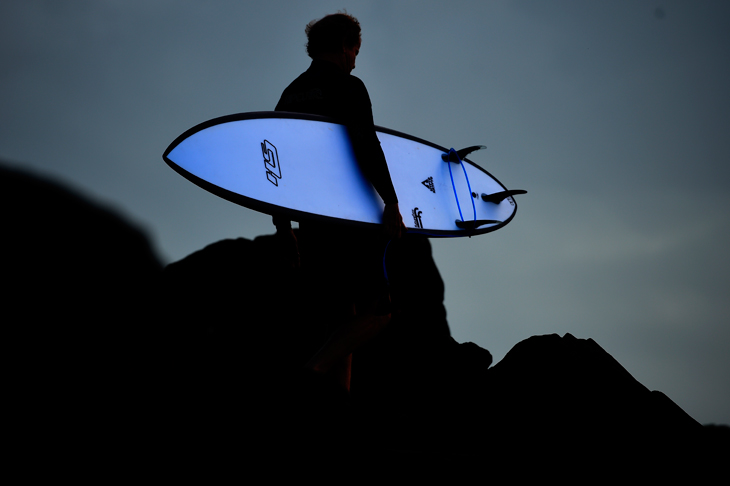Bloodlust of the greenies
First they came for the surfers, and I did not speak out because… wait. What? Surfers are a bunch of harmless pagan sun-worshippers. Who on earth would want to harm them? And even if someone did, should you care?
The answer to the former question is environmental zealots. The answer to the latter is yes because, like the groups further down the list in Pastor Martin Niemöller’s poem about Germany in the 1940s, you might be next. And if you think you’ve already been targeted by greens through their busybody meddling of everyday life or their constant bickering about your rapacious culture, think again. They haven’t started killing you yet.
There have been 22 known shark fatalities in Australia in the past decade. Nine of them have been surfers, including 17-year-old Laeticia Brouwer in Esperance last month. And almost all the other serious injuries of recent years have been inflicted on surfers, including another youngster, Sam Morgan, 20, in NSW, who could easily have died or lost his leg if the shark that attacked him didn’t also get a mouthful of sharp fibreglass fin.
Some environmentalists cannot conceal their glee that nature’s most fearsome, powerful predator is fighting back against us deplorable humans.
Glen Folkard, a tattoo artist and father of three kids, was badly mauled on the thigh and buttock while surfing Redhead Beach, near his home in southern Newcastle, in 2012. He was lucky to keep his leg, but will be in considerable pain for the rest of his life. He admits to suffering Post Traumatic Stress Disorder and being provocatively anti-shark as a result, but that doesn’t explain the vitriol he receives in return.
‘Suck sh-t being attacked by a shark,’ an anonymous environmentalist once said to him via text. ‘Hope ur in pain u little faggot… shame my friends couldn’t finish you off!’
In Ballina, northern NSW, one of the shark attack capitals of the world, where many residents know people who have been killed or maimed in attacks, a well-known shark conservationist walks down the main street wearing a T-shirt depicting a great white and the words ‘Respect the locals’.
With every new attack, conservationists rush to online forums to remind people that the victim was in the shark’s territory, and therefore the death or injury was acceptable. The first comment under one report about Brouwer’s death last month was ‘Shark Bait didn’t even make 18 yrs… Epic Parent Fail!’
Shark lovers are so fanatical that they turn viciously on any of their own who dare to break ranks, no matter how cautiously or compassionately.
When Kelly Slater, an 11-times world surfing champion and avid environmentalist, humbly suggested in February that it might be time to reduce the number of bull sharks off the French Indian Ocean province of Reunion Island, which had just witnessed its eighth fatality in six years (there has since been a ninth), he was abused as a ‘wanker’, ‘hypocrite’, ‘scum’ and ‘asshole’.
Slater quickly recanted his heresy. Not even someone as saintly as Slater is exempt from abuse.
This mob’s lack of humanity can also be seen in totalitarian regimes, but with a difference. In places like Nazi Germany, North Korea and Saudi Arabia, barbaric punishments are inflicted upon those who violate a formidable system. One imagines, or at least hopes, that the poor souls born under such benighted states dream of a life where freedom and compassion are the norm. The more imaginative of them might even dream of a society where the pursuit of happiness — in the form of surfing, for example — is universally encouraged and celebrated.
Here, the inhumanity is voluntary. In a prosperous, free society, increasing numbers of people are brazenly supporting and applauding the barbaric death or maiming of fellow humans.
Their warm and fuzzy concern for ‘the planet’ is a transparently thin cloak for their inhumanity. One of the common characteristics of these narcissistic sadists is that they only ever pick campaigns that don’t affect themselves. Every shark conservationist in Australia lives in a house or neighbourhood where native flora and fauna, unique to this continent, have been displaced or made extinct. These species are of little concern to them. What really concerns them, indeed infuriates them, is the thought that other people are having fun. To them, great whites are a magnificent gift from Gaia, a weapon in their modern version of the American prohibition in the 1930s.
A generation of nerdy, nature-loving researchers has stepped up to play the untouchable, pious officials in this joyless campaign. No adequate explanation was given for the introduction of protection for great whites. When the federal Environment Department’s Great White Recovery Plan was written in 2002, ‘nobody had any idea’ of the species’ global population, one of its authors told me this month. There were vague indications that the species was declining, but even if those indications were reliable, they have long since been disproved by countless photos of great whites lurking off our beaches and the increasing number of deaths and injuries they inflict. The researchers, of course, dismiss the observations and concerns of surfers and fishermen. What would those plebs know?
The decision to maintain protection, endorsed by every shark-researching academic and almost every politician in the nation, long ago became an arbitrary method of killing the joy in other people’s lives, much to the delight of the miserable harridans of the environmental movement.
‘If you don’t want to be eaten, don’t go in the water’ is their most common response whenever anybody suggests trimming back the number of sharks. But it’s not about the sharks. It’s about the thrill they get from telling other people what to do.
Who will they target next?
Got something to add? Join the discussion and comment below.
Get 10 issues for just $10
Subscribe to The Spectator Australia today for the next 10 magazine issues, plus full online access, for just $10.
You might disagree with half of it, but you’ll enjoy reading all of it. Try your first month for free, then just $2 a week for the remainder of your first year.














Comments
Don't miss out
Join the conversation with other Spectator Australia readers. Subscribe to leave a comment.
SUBSCRIBEAlready a subscriber? Log in